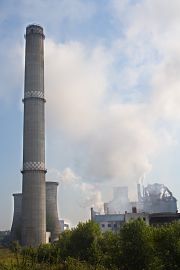It’s Easy…As Long as You Own a Factory
Did you ever try to make your own cooking oil at home? Say, for example, you wanted corn oil. Take a few kernels of corn and try pressing them in a mortar and pestle, or squeezing them with a binder clip, or even stepping on them. What do you get? A big mess – smashed corn and a clean-up job. But you won’t find any corn oil in your experiment.
The oil in your kernel is tightly bound with all the fiber in the whole corn, not to mention the protein, complex carbs, and other nutrients that make corn so yummy and filling. All these components are required for the kernel to do the job nature intended, which is to grow a baby corn plant. So the oil needs to hang in there pretty tight as part of nature’s complete plan for the next corn generation.
Here is the short version of how factories “refine” most oils from whole seeds – corn, soy, nuts, palm, and others. (Olive oil may require a less complex process.)
Step 1. Extraction. The “crude oil” is separated from the rest of the seed through use of a very strong press or solvents. In fact, even if some oil is obtained through mechanical pressure, solvents may be used to extract more. Hexane, a toxic, explosive chemical made from petroleum and also found is gasoline, is often used as the solvent.
Step 2. Degumming. “Impurities,” which are other natural plant components suspended in the crude oil, are separated by mixing water with warm oil and spinning the resulting mixture in a centrifugal separator revolving at high speeds.
Step 3. Neutralizing. Acids in the oil are now neutralized with caustic soda, which converts the fatty acids into an insoluble soap. Some factories may need to further wash and dry the oil to remove the rest of the soap after some settles out. The oil still is a bit yellow, though, and has smell most people would not like.
Step 4. Bleaching. The oil is bleached to make it the colorless liquid that consumers expect.
Step 5. Deodorizing. The factory uses various methods to get rid of remaining smells in the oil.
The oil must be kept away from air so it does not immediately oxidize, becoming rancid and inedible. Phytochemicals (biologically active plant nutrients) guard whole plant foods from quick rancidity. Vegetable oil is a degraded version of the plant and lacks the bulk of the original protective nutrients.
Vegetable oil is big business. Corporate factory owners, aided by an incompetent government bureaucracy, put out the message that these heavily manufactured products are not only natural, but also necessary for health. The pervasive myth is that you will lack essential nutrients if you do not eat refined vegetable oils.
Nothing could be further from the truth. These oils are factory foods which benefit food mega-industries. Even high price organic oils, which are more gently refined, are still far from the nutritious whole foods they are born in.
If you want to benefit yourself, stay away from refined oils and other manufactured foods. A balanced mix of whole foods will give you all the essential fats you need. You will be way healthier and trimmer after saying no to any oil in a jar or margarine in a tub.
Intrigued? Now you can use our Whole Foods Blog Finder to target informative, fun postings on plant-based nutrition. Quick information at no cost!
Blog by Janice Stanger, Ph.D. Janice authored The Perfect Formula Diet, a nutrition book built on sustainable food choices. Enjoy six kinds of whole foods for permanent, hunger-free weight loss and health.
Tags: getting healthy, Janice Stanger, lose weight, manufactured food, nutrition facts, Plant-based nutrition, vegetable oil, whole foods






